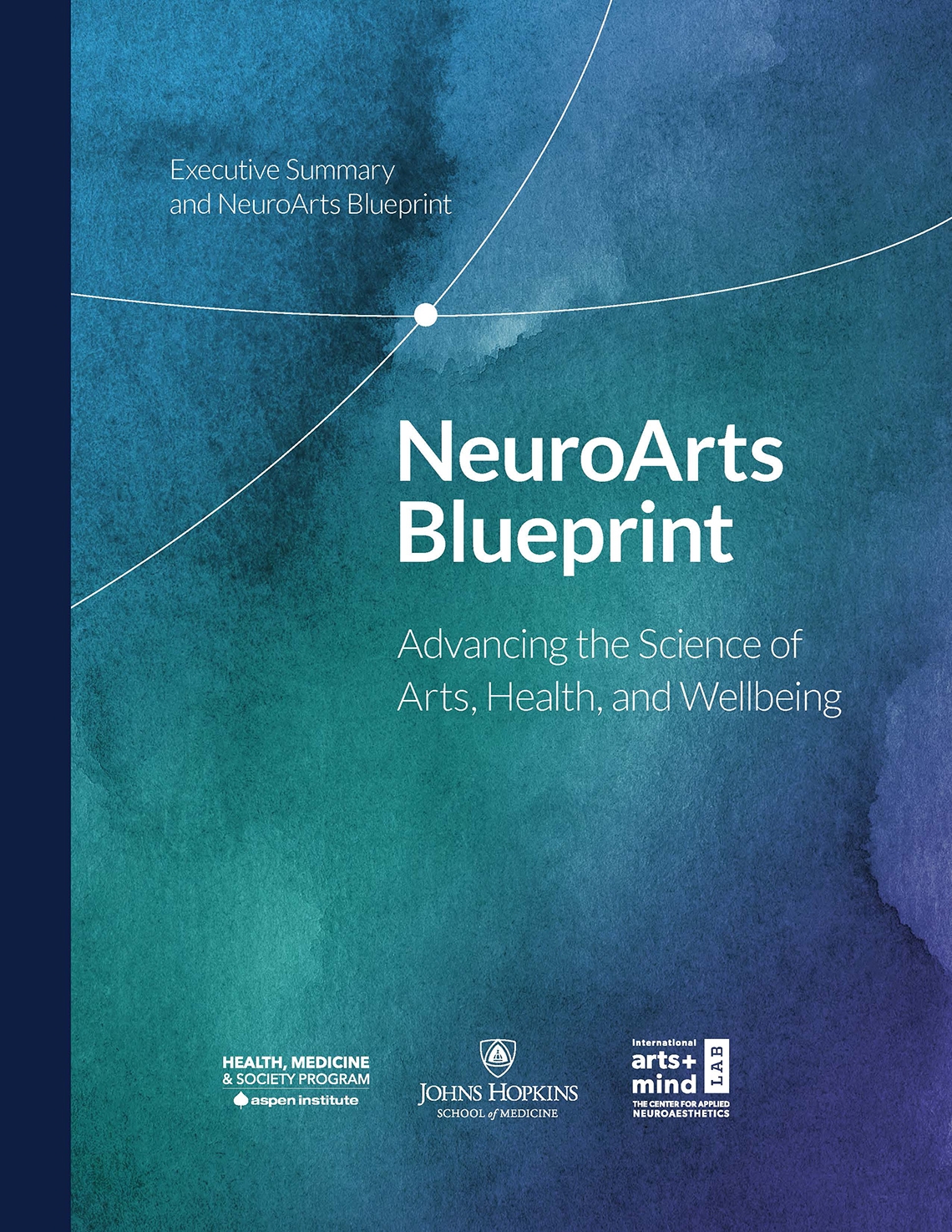AARP and the NeuroArts Blueprint Collaboration
Ob behalf of older adults, AARP and the Global Council on Brain Health (GCBH) are interested in how arts engagement can improve mental well-being and cognitive health, including treating symptoms of Alzheimer’s disease and dementia. The GCBH released Music on Our Minds in 2020, a report examining the evidence behind and the rich potential of music to promote brain health and mental well-being. Following that report, AARP partnered with the NeuroArts Blueprint Initiative to conduct an independent economic analysis on the impact music interventions might have on individuals living with Alzheimer’s disease, their caregivers and society.
Launched in 2019, the NeuroArts Blueprint Initiative is a 25-member advisory council of scientists, artists, clinicians, and technology pioneers, coordinated by the Aspen Institute and the International Arts + Minds Lab at Johns Hopkins University, that seeks to use science and technology to better understand how the arts can improve mental and cognitive health.
With AARP's support, the Initiative published the economic analysis as part of their comprehensive report NeuroArts Blueprint: Advancing the Science of Arts, Health, and Wellbeing. The Blueprint is an action plan to strengthen, formalize, and propel the emerging field of neuroarts and connect stakeholders across a vast and disparate landscape into a cohesive ecosystem.
The Blueprint report includes a broad call to advocates of the arts and neuroscience to:
- Strengthen the research foundation of NeuroArts.
- Honor and support the many arts practices that promote health and wellbeing.
- Expand and enrich educational and career pathways.
- Advocate for sustainable funding and promote effective policy.
- Build capacity, leadership, and communications strategies.
Music and Alzheimer’s: The Economic Case
The Global Council on Brain Health’s Music on Our Minds report revealed that music engagement can have powerful benefits for people living with Alzheimer’s disease and dementia. These benefits also have important economic implications: music engagement could lower the amount of healthcare services used by people living with Alzheimer’s and reduce unpaid caregiver burden, thus decreasing costs for treatment and freeing up caregivers’ time to work paid jobs. To explore this issue further, the NeuroArts Initiative, with AARP’s support, commissioned KPMG to conduct an independent analysis that analyzes the economic impact of music engagement. You can read the report here: Alzheimer’s Disease and Music Engagement Economic Impact Analysis.
To share the report’s findings widely, AARP hosted a webinar, Music and Dementia: The Economic Case, in June 2022. Watch the recording below:
The top line? Adopting music engagement for people living with Alzheimer’s disease could have significant benefits for the US economy.
One key finding was the costs of music engagement as an intervention for a person living with dementia is $816 per year, compared with a $3,600-cost for a year of pharmaceutical treatments. In addition, widespread adoption of music engagement to treat varying levels of the population living with Alzheimer’s could generate economic output ranging from $996 million to $2.3 billion, as well as create thousands of new jobs and generate labor output in the hundreds of thousands of dollars in the United States in one year alone.
While more research needs to be done, it’s increasingly clear that music holds significant benefits for people living with Alzheimer’s and broader society.

